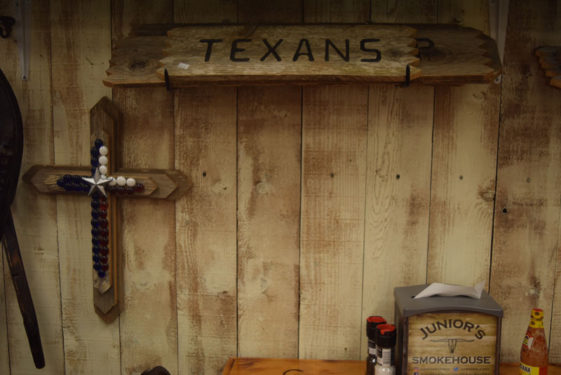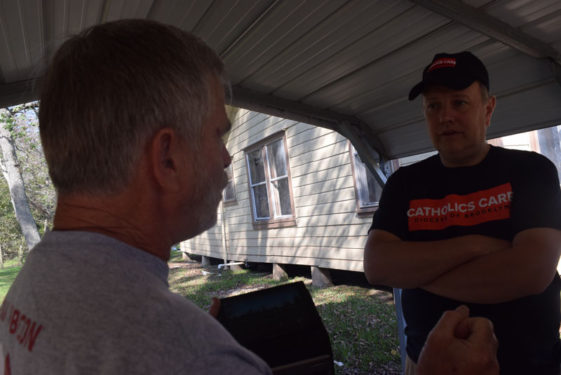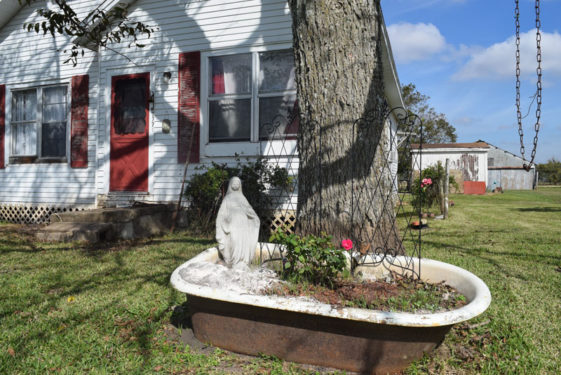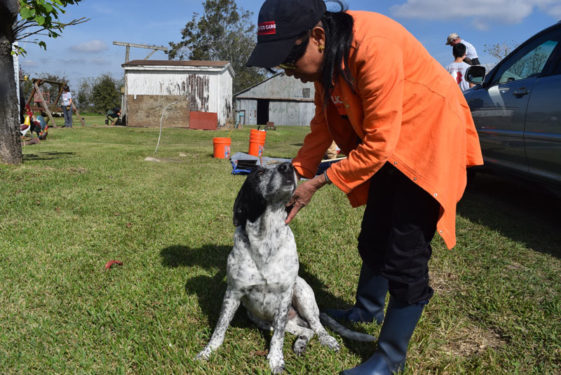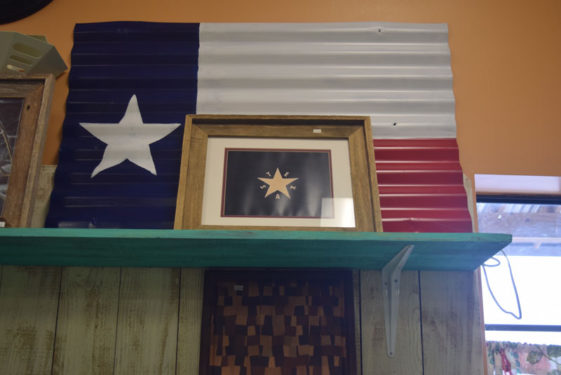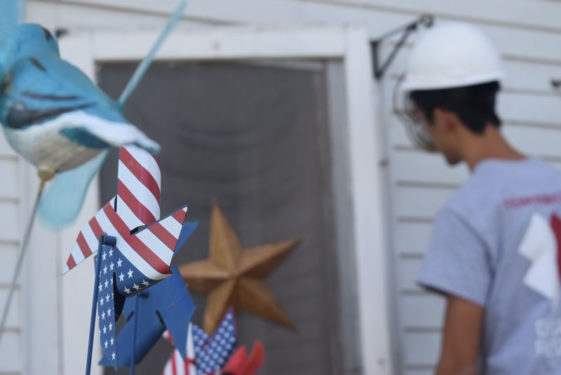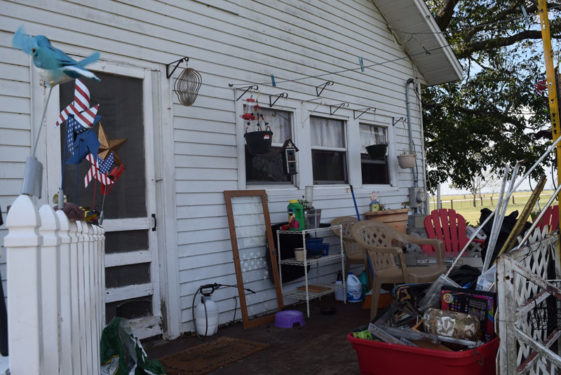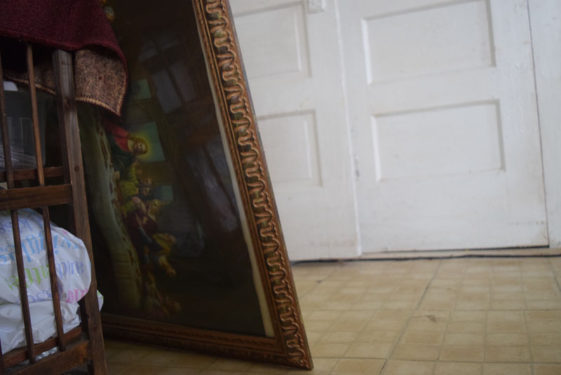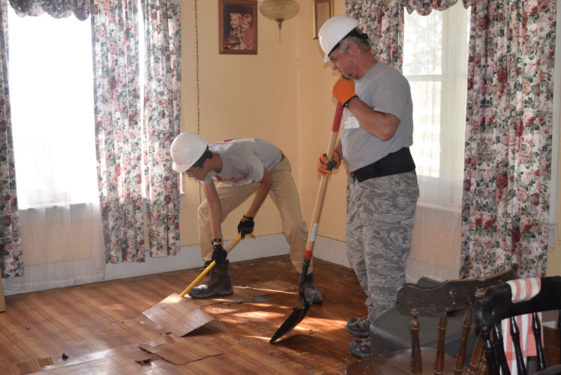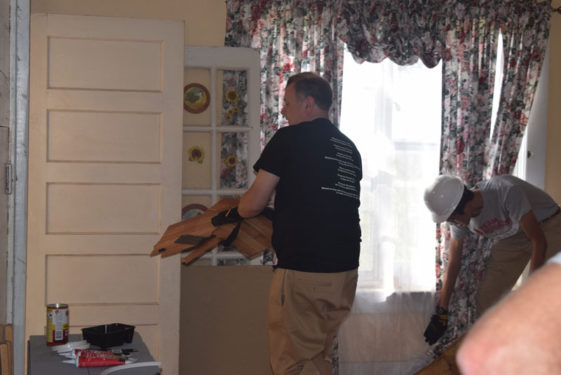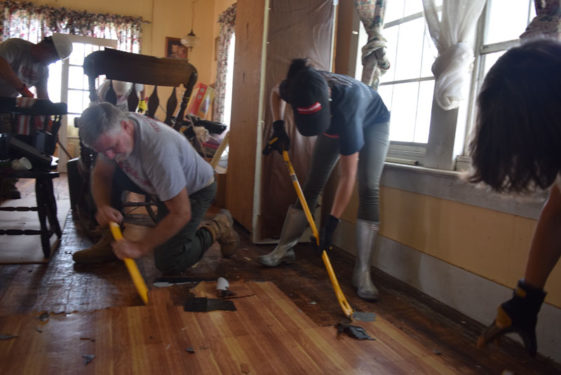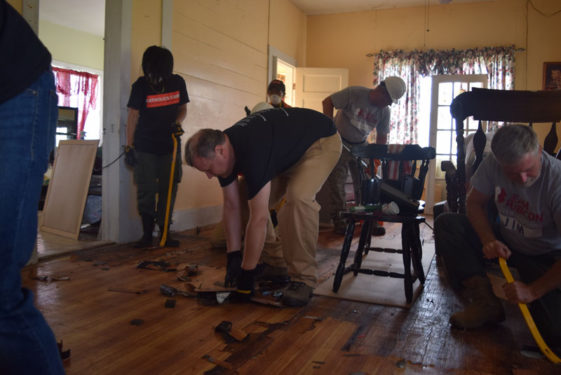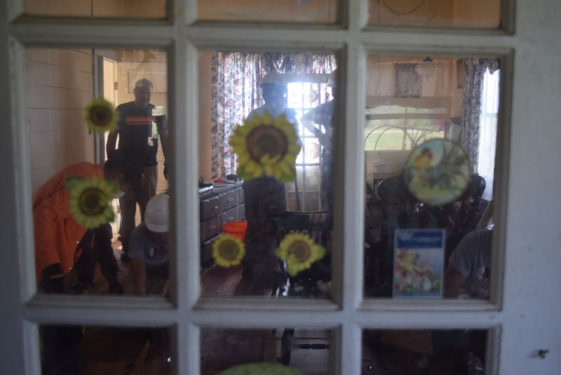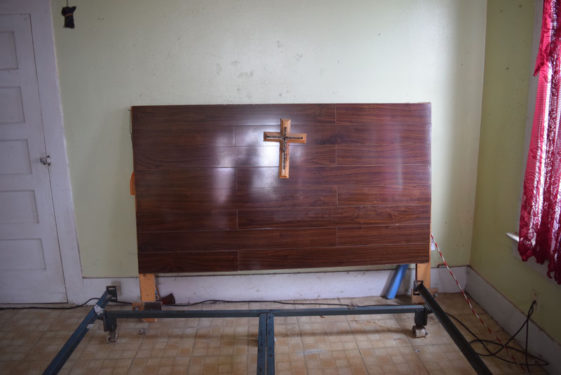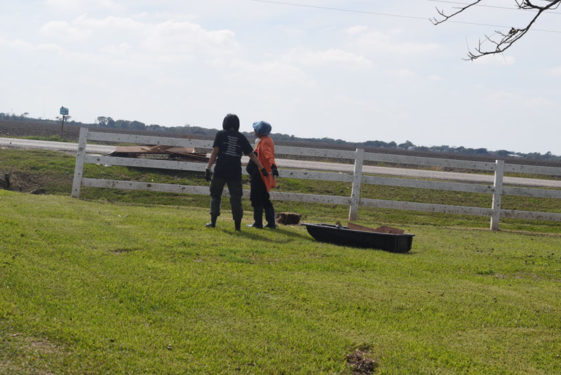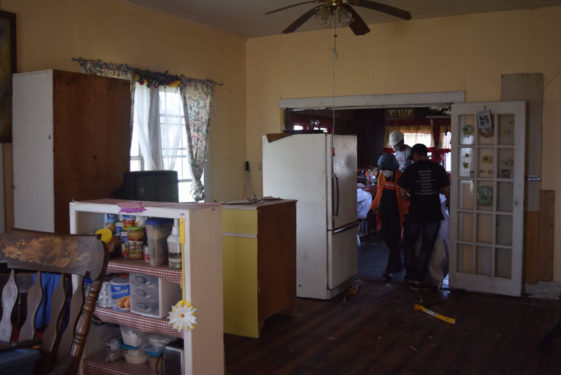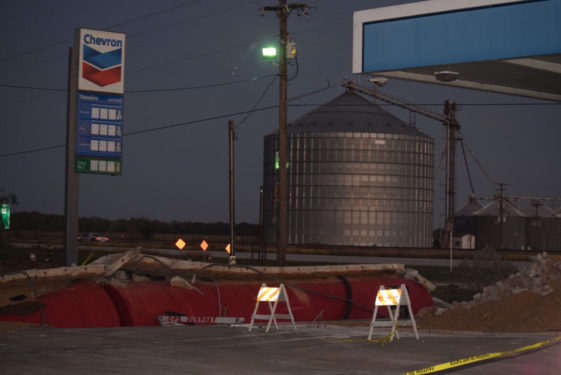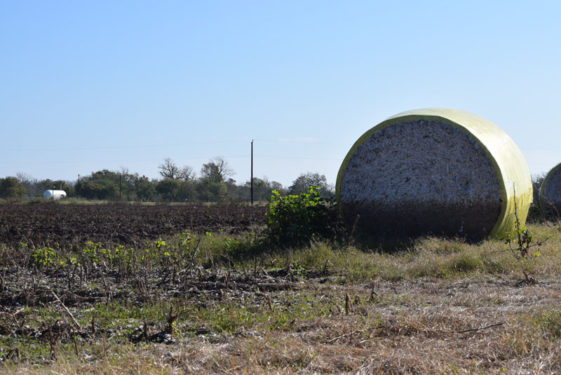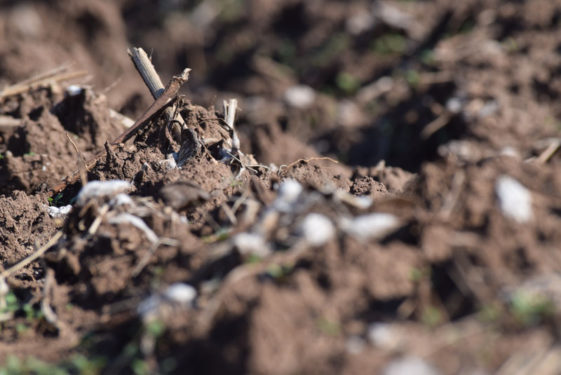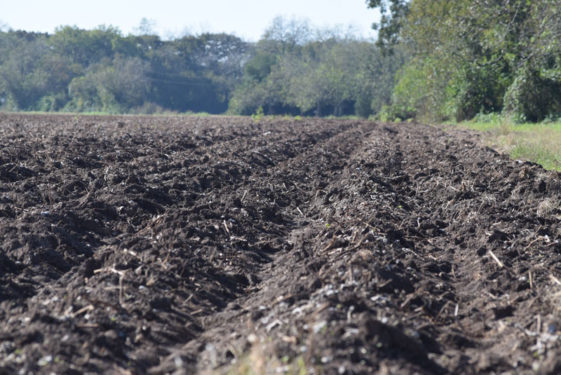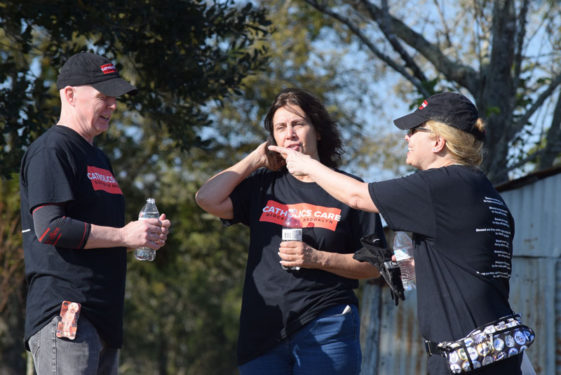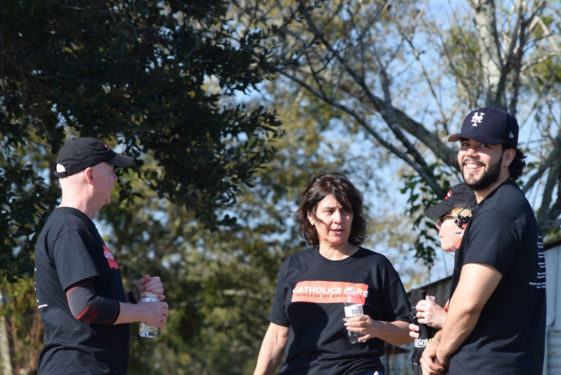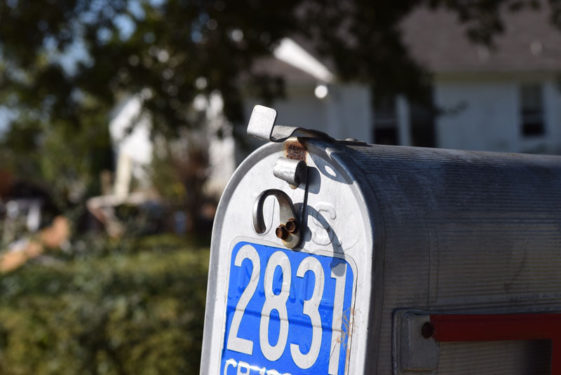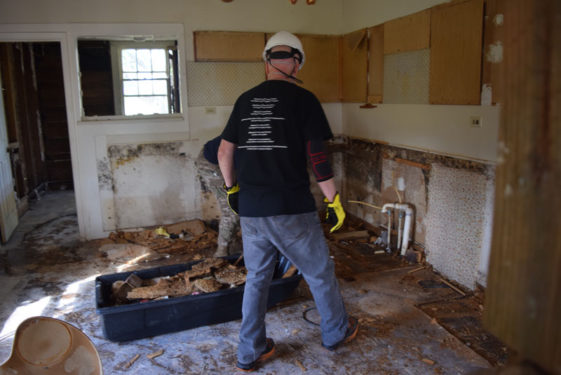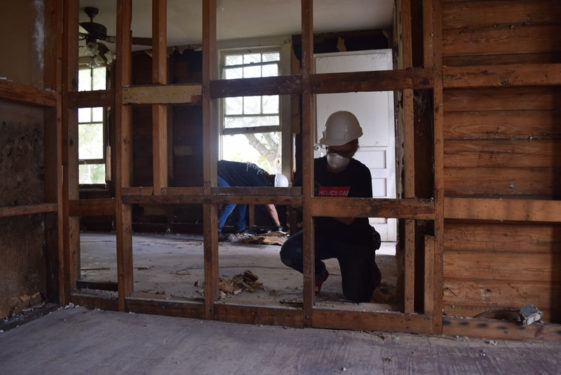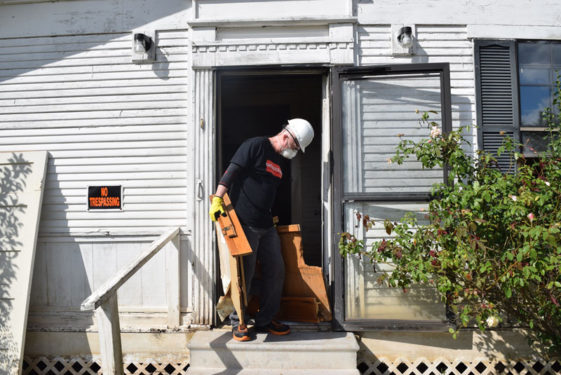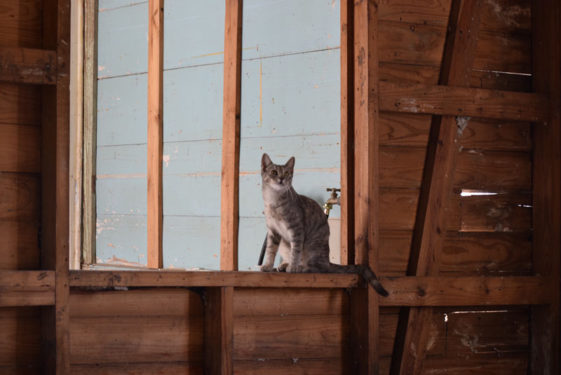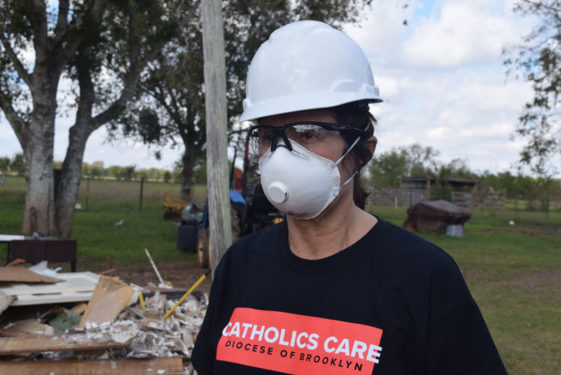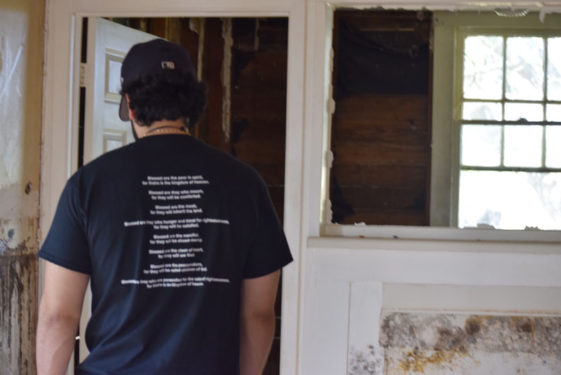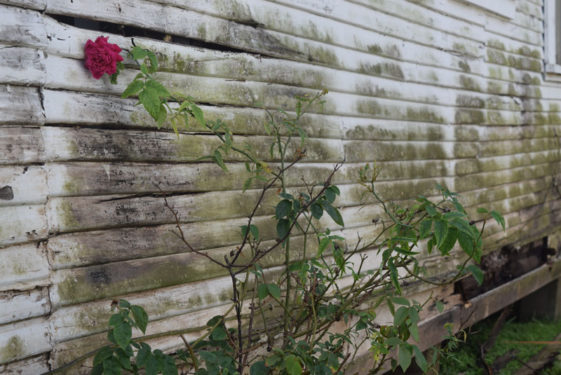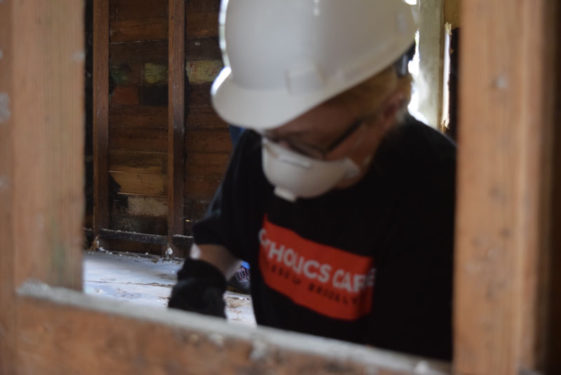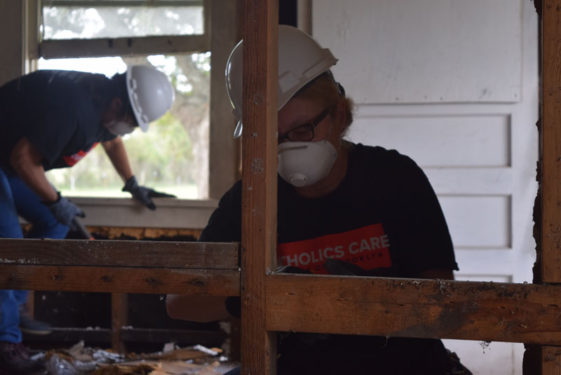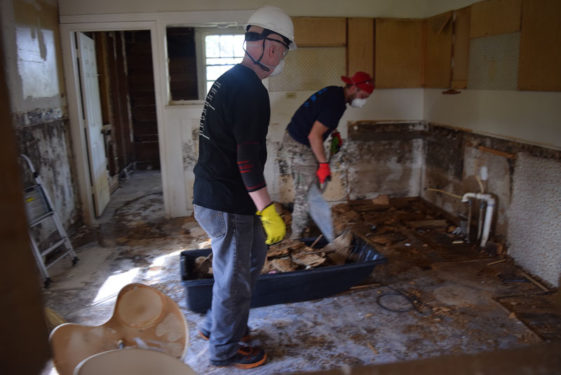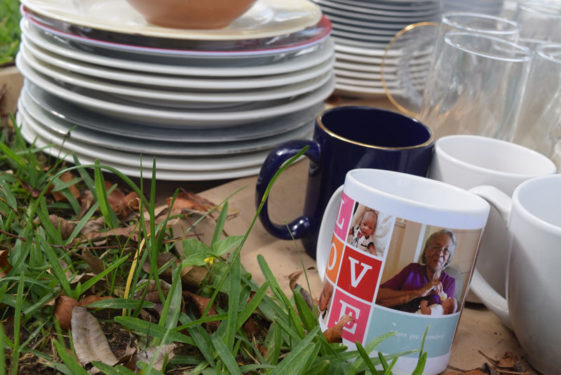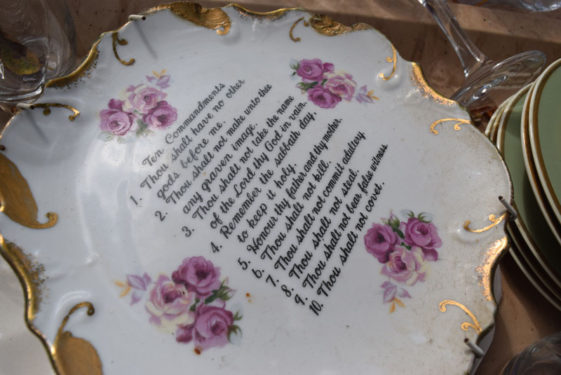HOUSTON, Texas – Eighteen strangers from the Brooklyn Diocese, ranging from DeSales Media staff to a retired nurse from Woodside, a bride-to-be/freelance construction project manager from Sunnyside, a retired school teacher from Long Island to a student studying English as a second language from Colombia, all gathered at John F. Kennedy Airport on Nov. 12 to embark on a mission trip. It would take them away from their everyday lives in order to help victims from Hurricane Harvey in Houston, Texas.
“My brother-in-law has been living in an apartment since he couldn’t go back into his house when they let water out of the dam,” said Stephen Ross, a retiree and parishioner at Our Lady of Perpetual Help, Sunset Park. Ross signed up for the mission trip after his wife, who is the pastor’s secretary, told him about it.
“I’m retired. I’d rather be helping people than sitting in a couch or doing dishes or laundry so hopefully I can be of assistance, that’s all that I want,” he said.
The week-long trip, Nov. 13-17, means the volunteers will spend their time helping with assignments as needed by Catholic Charities of the Archdiocese of Galveston-Houston.
“The real problem is in the jobs that have been lost, the middle-class communities that have now turned into poverty-stricken communities and all the thousands of resources now being diverted to meet those needs,” said Matthew Johns, Catholic Charities’ director of disaster recovery services.
Assignments could entail tasks that not only include hard labor in affected homes, but also administrative work that Catholic Charities needs within the rebuilding process.
“It’s because of groups coming in from out of town much like the Diocese of Brooklyn, that makes it easier for us to stay strong and continue moving forward,” said Johns.
Houston Day 1
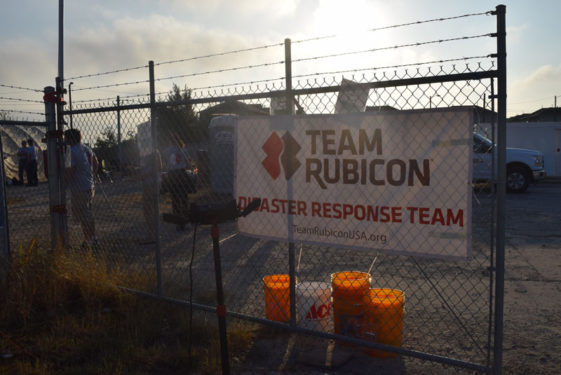
In a caravan of three Texas-sized Suburban vans, the New Yorkers were welcomed into a vacant lot – fenced off with a sign that said “Team Rubicon Disaster Response Team.”
Team Rubicon was the organization that the volunteers would partner with during their first mission – helping muck and gut damaged homes. The mission, according to the organization, is to utilize the skills of veterans, first responders and civilians in order to provide emergency relief and recovery around the world. Team Rubicon started in Minnesota by Marines seven years ago following the disastrous earthquake in Haiti. Here the organization included military veterans guiding the East Coast lay-parishioners into duty.
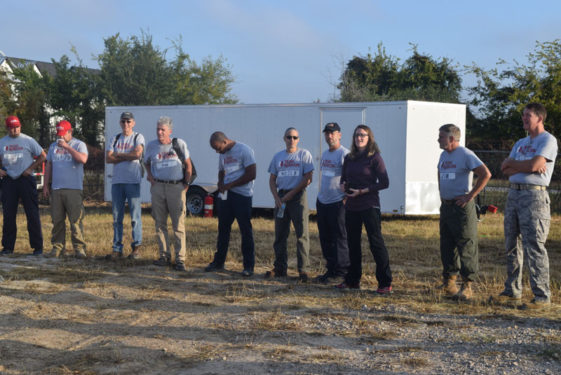
“At this point in November, we’re two and a half months after the disaster so the properties are dry, but the mold is present everywhere, so we’re still doing those muck outs and removing debris, but a lot of people have been assisted,” said Lauren Vatier, a St. John’s University alumna and planning section chief member from Team Rubicon.
Vatier has been helping relief efforts in Houston for more than a month. “People are stepping into the rebuilding phase, but there’s still a lot of people who need help,” she said.
What could have been mistaken for a combat-zone military style headquarters, became the location where the volunteers learned their first assignment: to head 50 miles south of Houston into the agricultural town of Wharton, Texas.
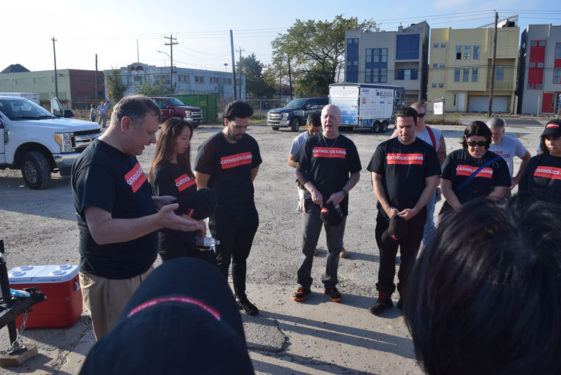
Leading one of the groups that included the diocese’s Vicar for Communications Msgr. Kieran Harrington, was Jim Christy, an Army veteran, 1971-79. Christy lost his wife last year and was seeking fulfillment in his life. When he heard about Team Rubicon, he signed up and more than a week later, he found himself in a small Gulf Coast city with less than a total population of 9,000 people.
“There’s a camaraderie here that you can’t find in civilian life,” said Christy. “As soon as you see someone in this gray shirt, there’s a bond, there’s a brotherhood and there’s an immediate relationship with that person. It just lasts forever. The look on the people’s faces when you show up to help them, you can’t put a price tag on that.”
The veteran who also helped with the California wildfires said the people in Wharton were “probably the most gracious of any community” he has worked with.
“They’re appreciative,” he added. “We don’t see this because the news doesn’t usually portray it, but you see the true nature and you actually look into someone’s heart. I mean these people had nothing to start with and now what little they have left, they’re willing to share and give to you, it’s really rewarding.”
After being instructed on safety measure and precautions, the volunteers embarked into the houses – doing tasks that ranged from taking out linoleum flooring to gathering garbage. But it was in the small conversations or moments of getting to know the people around them that struck a chord with the community.
David Bijarro was Marine veteran whose family also lost everything during Hurricane Katrina. Although a South Carolina native, he grew up in Wharton before moving to Louisiana after joining the military. He was on-site to see the volunteers who were helping gut out his 72-year-old mother’s two-bedroom family home.
Bijarro said, “When you lose everything and you don’t get anything in return, you still get phone calls, telling what you owe.”
He catches his breath to pause as he stood in the middle of the empty wooden kitchen, smelling more like chemicals rather than home-cooked meals, recounting the 12 years since Katrina ravaged his home. At that time, his family had to spend all their retirement funds to get back on their feet and received no assistance from his insurance company.
“It’s difficult. But I just always think somebody got it worse than me,” he said.
As the Brooklyn volunteers wrapped up their first day’s assignment, it was time to head back to the city of Richmond, Texas, where they were staying in homes designated by Catholic Charities of the Archdiocese of Galveston-Houston.
Drained, But Not Defeated
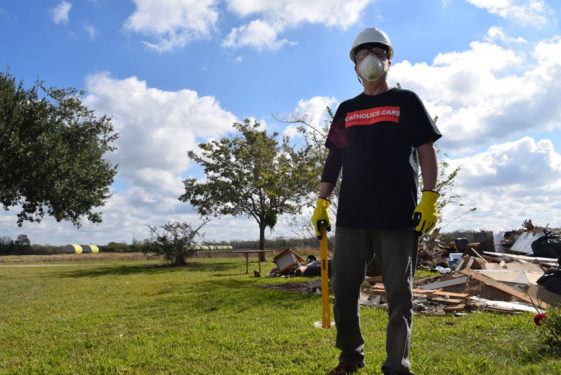
In the living room of the men’s quarters, they looked somewhat drained but not defeated, rather reflective of the day’s work. Msgr. Harrington celebrated Mass with the volunteers. He allowed time for group fellowship, opening up the floor for everyone to speak about the heart of the trip once again – why they said ‘yes’ to serve in Houston.
For Alondra Alberti, her ‘yes’ came at a time where she was also transitioning in her career while at a crossroads in her life. The St. Teresa, Sunnyside, parishioner was grateful that while she couldn’t afford the cost of the trip, her parish was able to sponsor her.
“We’re all on this trip, we’re all going through a transition in life, we’re at a crossroads,” said Alberti. “But I am so grateful for the way things have transpired in life. God is so delicate sometimes with us. We’ve all gone through crossroads but we haven’t really endured a natural disaster where your physical world is totally taken, is uprooted and that really resonated with me yesterday. I couldn’t stop crying at the end of the day because I was so grateful for my process.”
The personal testimonies turned into reverence for the Eucharistic celebration. The moment signified that while first the group started off as strangers on a plane leaving Queens, within the living room of a Texas home they became unified in the breaking of the bread.
Related: Catholics Who Care Are Back From Houston Aid Trip
The tasks for the first day were complete. While the sounds of their hard work vanished into their memory – garbage bags swishing in the Texas grass, tools crushing onto plywood or work boots thumping with every footstep on sticky linoleum glue – their echoing impact might be felt just by their mere presence.













